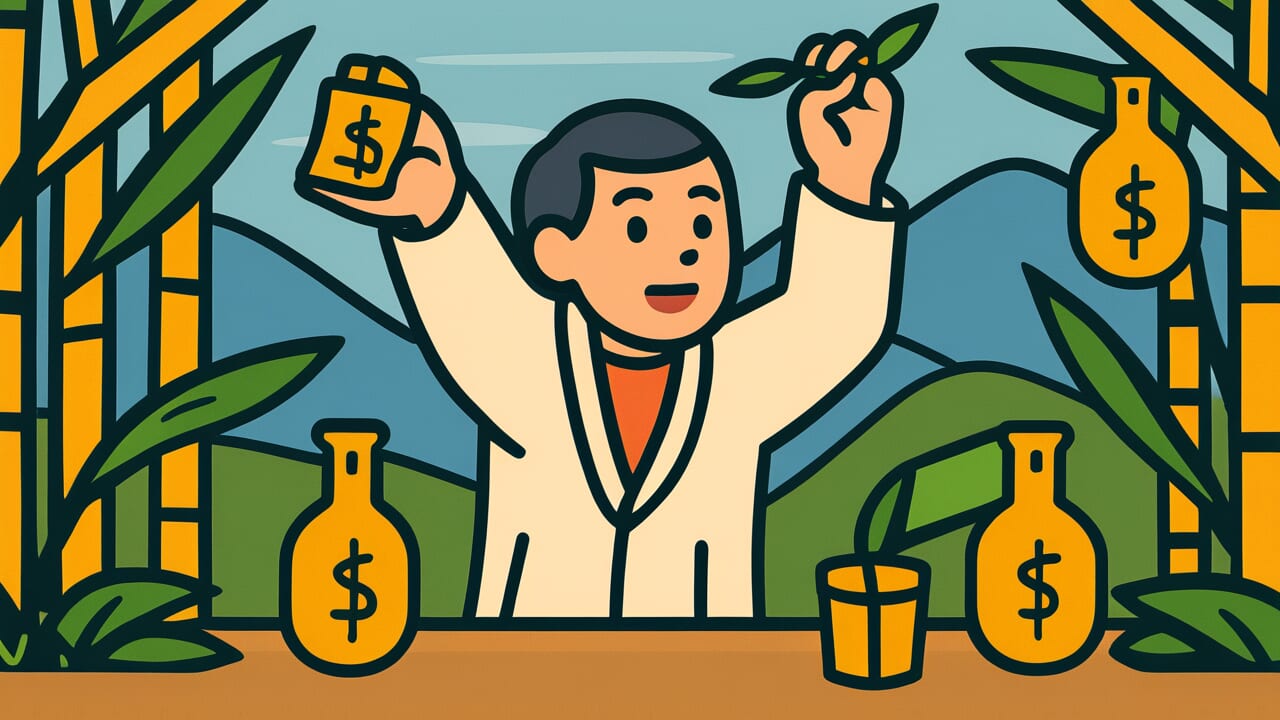How to Read “Overspending on seasonal festivals becomes medicine money”
Sekku daoshi wa yakurei ni naru
Meaning of “Overspending on seasonal festivals becomes medicine money”
“Overspending on seasonal festivals becomes medicine money” warns that working when you should rest will eventually make you sick. The money you earn will just go to medical bills.
This proverb applies to people who work through holidays and weekends. It also fits those who push themselves despite feeling unwell.
You might work through your exhaustion out of responsibility or for immediate profit. But eventually your health breaks down. All the money you earned ends up paying doctors.
This defeats the whole purpose of working so hard.
This teaching remains relevant today. In fact, it matters more now than ever. Overtime work and long hours have become serious problems in modern society.
Once you lose your health, regret comes too late. Taking proper rest when you should is the wisest choice in the long run.
This proverb contains the practical wisdom of our ancestors.
Origin and Etymology
No clear written records explain the origin of this proverb. However, the words themselves reveal an interesting background.
“Sekku” refers to seasonal festivals established during the Edo period. These include the five major festivals: Jinjitsu, Joshi, Tango, Tanabata, and Choyo.
These days were for thanking the gods and celebrating with family. Most importantly, they were days to rest from work and restore energy.
In an era centered on farming and commerce, people worked from dawn to dusk every day. Seasonal festivals provided precious opportunities to rest.
“Daoshi” means to ignore or neglect something. So “sekku daoshi” means continuing to work even on festival days when you should rest.
“Yakurei” means medicine money, specifically payment to doctors. During the Edo period, medical costs were a heavy burden for common people.
If you pushed yourself too hard and ruined your health, the money you earned would disappear paying doctors. Our ancestors sharply understood this reality.
This proverb concentrates the life wisdom of people who valued hard work. But they also understood the importance of rest.
Usage Examples
- I worked through the New Year holidays and got sick. It’s exactly like “Overspending on seasonal festivals becomes medicine money.”
- You should rest instead of forcing yourself to work. They say “Overspending on seasonal festivals becomes medicine money,” right?
Universal Wisdom
“Overspending on seasonal festivals becomes medicine money” has been passed down through generations. Behind it lies deep insight into human nature.
People prioritize immediate benefits and responsibilities. They neglect their body, which is their most important asset.
Work today and earn money today. Rest today and work falls behind. These short-term calculations capture our minds. We lose our long-term perspective.
This isn’t just a modern problem. It’s a timeless human weakness.
What’s fascinating is how this proverb works. It doesn’t simply say “rest.” Instead, it shows a concrete economic consequence: “it becomes medicine money.”
People respond better to practical loss than moral lectures. Our ancestors knew this well.
Rather than speaking abstractly about health’s importance, they used a concrete image. The money you work for ends up going to doctors.
This proverb contains calm observation of human nature. People are weak against immediate gains. They tend to overestimate their health.
Therefore, you must warn them by showing specific losses. This practical wisdom explains why the saying survives across generations.
Its understanding of human nature is universal.
When AI Hears This
Looking at festival exhaustion from a biological systems perspective reveals a surprising structure. This is “planned small disruption” that periodically activates the body’s recovery systems.
Normally, our bodies operate in energy-saving mode. The immune and metabolic systems work at minimum necessary levels.
But when you push yourself a bit during festivals, your body judges this as an emergency. It mobilizes repair functions that usually sleep.
This works like muscle training. Muscles break down first, then rebuild stronger. Science calls this the “hormesis effect.”
Moderate stress actually strengthens the entire system.
What’s interesting is the frequency of this disruption. It happens several times per year, which is perfectly balanced.
Daily stress would exhaust the body. Once every few years would let recovery systems rust. The cultural mechanism of seasonal festivals unknowingly created an optimal training cycle for biological systems.
Medicine only suppresses specific symptoms. But this adaptation cycle raises the body’s overall baseline strength.
The festival “collapse” isn’t a failure exposing system weakness. It’s regular maintenance that trains recovery capacity.
Lessons for Today
This proverb teaches you a question: What is true productivity? We live in a culture that treats hard work as a virtue.
Do you feel guilty about resting? Do you believe working despite exhaustion proves your responsibility?
But think about it. Your body is an irreplaceable tool. It helps you achieve everything you want in life.
If you overwork and break that tool, you can’t realize any dreams.
Modern society requires strategic rest. Rest properly on weekends. Use paid vacation days systematically. When you feel sick, rest without forcing yourself.
These aren’t laziness. They’re investments for working healthily over the long term.
If someone around you works without rest, remember this proverb. And ask yourself this question too.
What do you lose by resting today? What do you lose by losing your health? Which is greater?
True wisdom means having the courage to rest when you should rest.



Comments